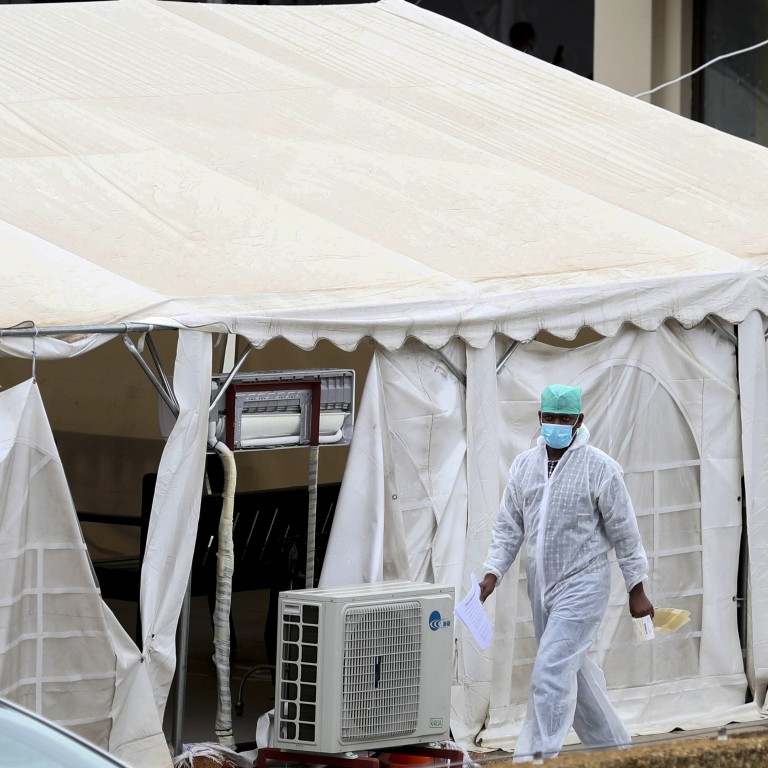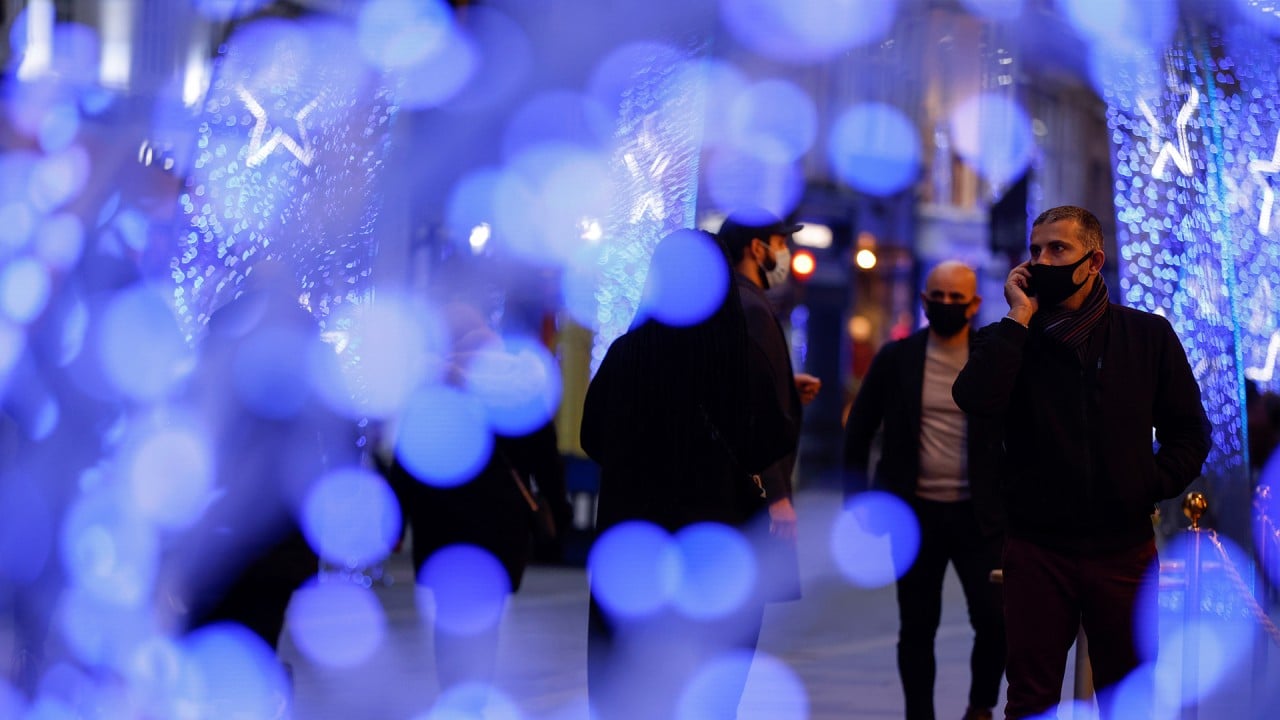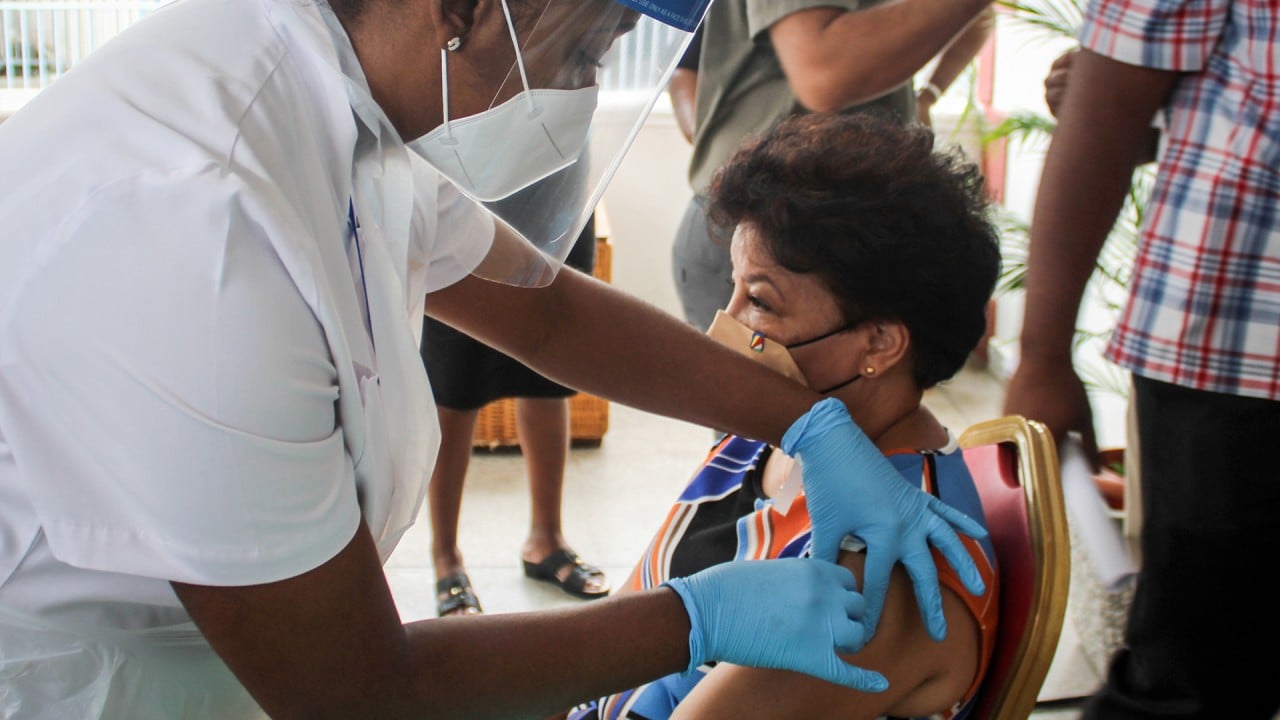
South Africa at ‘most devastating’ point as new coronavirus variant spreads
- Country enduring its worst point of the pandemic, with variant 501.V2 spreading much faster than earlier variants, President Cyril Ramaphosa says
- Hospital beds running out, although Ramaphosa says progress is being made to secure vaccines
“The number of new infections, hospital admissions and deaths is higher now than it has ever been since the first case was recorded in our country in March 2020,” Ramaphosa said in a televised address on Monday night in which he said the outbreak was “now at its most devastating”.
The continent’s most affected nation has so far recorded more than 1.2 million Covid-19 cases and more than 33,000 coronavirus-related deaths. Africa has reported about 3 million coronavirus cases and slightly more than 73,000 deaths.
Ramaphosa said that in several parts of the country hospital admissions are much higher than during the first wave of cases last year. More than 15,000 people with Covid-19 were in hospitals, “placing a considerable strain on health facilities, personnel and equipment”, he said.

03:57
Coronavirus: what we know so far about the new strain of Covid-19
He warned that hospital beds were fast running out, since about a third of those admitted to hospital were on oxygen.
“Emerging information suggests that this new variant does not cause more severe illness than the original variants,” Ramaphosa said. “But it does put more pressure on the health system because the cases increase so rapidly and the hospitals get full more quickly.”
The country has reintroduced restriction measures on social gatherings, and extended the night curfew for a month to curb the spread of the virus. It has also banned all land border crossings for general travel, though not for goods transport.
Covax: China’s in, America’s out, but what is it all about?
South Africa will receive vaccine doses for about 10 per cent of the population through Covax. And as chair of the African Union, “[South Africa] initiated the establishment of an African vaccine acquisition task team to source vaccine doses for the continent,” Ramaphosa said. “These will be purchased in bulk and African countries will be able to order vaccine doses from this pool.”
It is estimated that Africa as a whole will need 1.5 billion doses to immunise the target of 60 per cent of its population.

01:48
Seychelles first African nation to begin Covid-19 vaccinations using Chinese shots
Ramaphosa said that through engagement with vaccine manufacturers, the task force had “done tremendous work to secure vaccine doses for countries on the continent”.
“Given the massive global demand for vaccines and the vastly greater purchasing power of wealthier countries, we are exploring all avenues to get as many vaccine doses as soon as possible,” Ramaphosa said, adding that his country had to date secured 20 million doses, to be delivered in the first half of the year.

